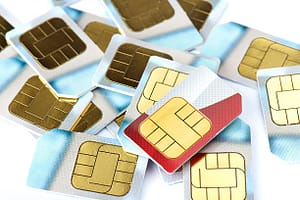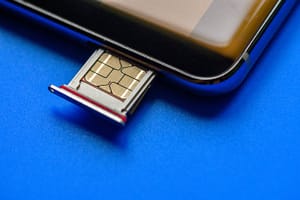

Over the weekend, telecommunication companies in Nigeria “blocked 40 million phone lines” because their owners did not link them with their National Identity Numbers (NIN) by the deadline of February 28, 2024. This number significantly exceeded the initially planned 12 million lines targeted for disconnection, as mandated by the Nigerian Communications Commission (NCC). In December 2023, the NCC had instructed phone companies to “bar SIMs that had not been linked to their owners’ NINs by February 28, 2024.” The NCC’s Director of Public Affairs, Reuben Mouka, confirmed that “there would be no extension of the deadline,” and companies that failed to comply would face penalties.
Gbenga Adebayo, the Chairman of the Association of Licensed Telecommunications Operators of Nigeria (ALTON), initially stated that they would block 12 million lines. However, he later revealed that the actual number of blocked lines had escalated to 40 million, indicating that these were SIMs “without NIN” included in the count. Adebayo explained the situation, saying, “I can tell you that over 40 million lines have been blocked and the affected customers are those who didn’t submit their NIN at all.”
The directive was part of a broader initiative, as the NCC also required Global Satellite Mobile Communications operators to “bar SIMs holders whose NINs have been submitted but not verified by March 29, 2024; and interdict those who have less than five lines linked to an unverified NIN by April 15, 2024.” This initiative was introduced by the Federal Government on December 16, 2020, with the aim of enabling security agencies to track criminals more effectively.
Despite the rationale behind the policy, questions have been raised regarding its effectiveness. Nigerians are wondering why security agencies have not utilized the SIM-NIN linkage to track criminals, “especially bandits and kidnappers, who often use mobile telephone lines to speak with victims’ families during ransom negotiations.”
As of now, Nigeria has “224.7 million active mobile telephone lines,” as reported by the NCC. Adebayo did not provide a detailed breakdown of the subscribers or SIMs that were deactivated but noted that “over 40 million lines have been deactivated.” He also hinted at further disconnections, saying, “The second tier of disconnections that will happen are those who have provided NIN but have more than five Mobile Subscription Identification Numbers associated with their NIN, and these have not been verified.”
Adeolu Ogunbanjo, President of the National Association of Telecoms Subscribers, expressed concerns over the process and mentioned potential legal action if the deadline isn’t extended. He argued for a more lenient approach, stating, “We have appealed to the Nigerian Communication Commission to extend the deadline till March 31st. But if this is not done, we will observe the situation for the next three days, that is Monday to Wednesday and if this is not granted, we will have to file a case in court on Thursday.”
Read Also: INEC Explains Why IReV Failed During 2023 Presidential Election

[…] Read Also: SIMs-NIN linkage: Blocked lines rise to 40 million in Nigeria […]
[…] Read Also: SIMs-NIN linkage: Blocked lines rise to 40 million in Nigeria […]